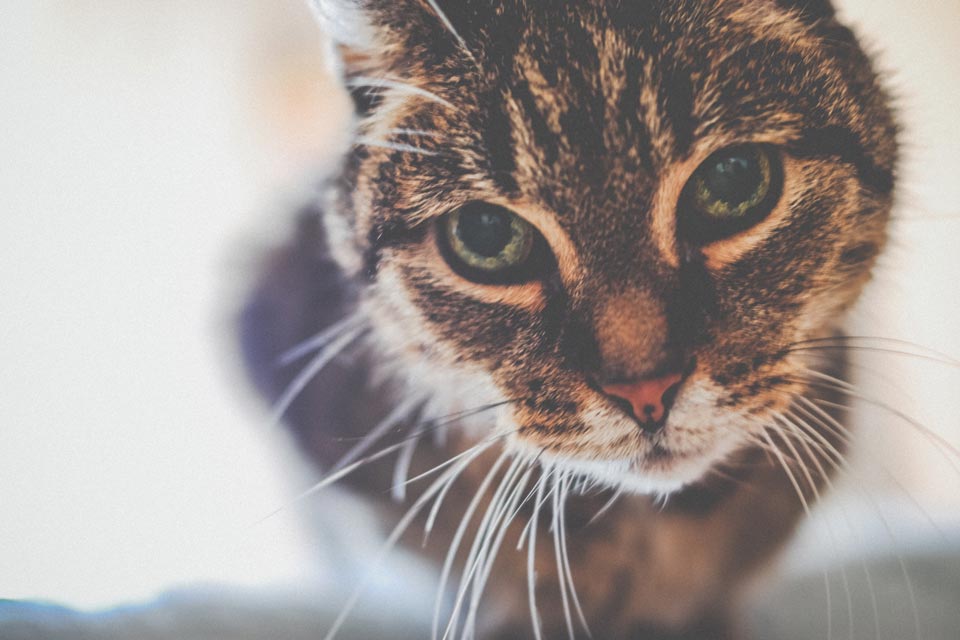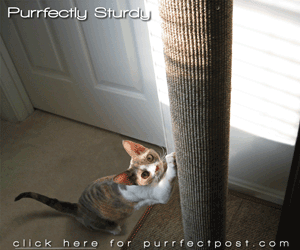Caring for a Senior Cat

Most veterinarians consider a cat to be a senior when he is between 7 and 10 years old. Some conditions are more common in seniors, so it's important to be prepared for this season in your cat's life. Here, we take a look at some of the conditions commonly diagnosed in senior cats and their signs as well as general tweaks to make in your older cat's care.
Some Conditions More Common in Senior Cats
As a cat gets older, some health conditions become more common. Here are some of those along with their typical signs:
- Heart disease. The most common heart condition in cats is hypertrophic cardiomyopathy, and younger cats can have it too. Many times, heart disease is "silent" in cats until it is quite advanced, which means, often, there are no signs. However, coughing, exercise intolerance, panting, weakness, and pale or blue gums can be signs of heart disease in cats and should all be checked out by a veterinarian right away.
- Hyperthyroidism. Today, hyperthyroidism is commonly diagnosed in older cats. It means that the thyroid gland is over-working, producing too many thyroid hormones which speed up the cat's metabolism. Common signs are dramatically increased appetite, severe weight loss, hyperactivity, increased vocalizations, and irritability.
- Kidney disease. As cats get older, their kidney function can decline. Often, this does not lead to any clinical signs until kidney function is 75% gone. When signs do appear, they usually include increased water consumption and urination, weight loss, and decreased appetite.
- Diabetes. This is more common in cats that are overweight, and it can happen in younger cats also. Signs usually include increased appetite, weight loss, and increased water consumption and urination.
- Dental disease. Plaque, tartar, gingivitis, and periodontitis all increase as a cat ages. Loose and broken teeth and tooth root abscesses may occur. Signs of dental disease can include foul breath, red gums, dirty teeth, drooling, pawing at the mouth, and decreased appetite.
- Arthritis. Inflammation, swelling, and pain in the joints are common as a cat ages. Signs can include stiff gait, limp, difficulty climbing or jumping, inactivity, and licking excessively at the fur over painful joints.
Care Changes for Senior Cats
When your cat becomes a senior, some small changes in care routines can help keep him comfortable and healthy for as long as possible. These include:
- Increase the frequency of your cat's routine veterinary visits. While a younger cat might be fine visiting the vet for a check-up once a year, a senior should go more often. Your veterinarian is best suited to determining exactly how many times per year your senior cat should be evaluated, but twice a year is a good start. Your vet can often catch the beginnings of conditions much earlier when your cat is examined and has lab work done regularly and that means they may be more treatable.
- Consider a shallower litter box. If your cat has sore joints, a litter box with lower sides will help him get in and out of it easier.
- Be sure there are litter boxes on every floor. Your older cat might have a harder time with stairs. Be sure there is a litter box on each level of your home so he can get to one easily at all times.
-
Cozy up the cat beds. Add extra cushion to your cat's beds to help his joints stay comfortable and give him extra warmth. Some great additions to beds are Muffin Blankets, which can be layered and are incredibly soft.
- Ask your vet about diet. Your senior cat should be fed a diet specially formulated for his life stage. Senior cat food has less protein, and other nutrients are also adjusted to more strongly benefit an older cat. Your vet can tell you when it's time to switch your individual cat to a senior diet.
- Discuss supplements with your vet. Some older cats can benefit from certain dietary supplements but always check with your vet before starting any.
- Make water consumption easy. Cats often struggle with dehydration because they have a low thirst drive and might not drink enough. As they get older, this may take more of a toll. Do what you can to make sure your cat gets enough water, including adding some to his food, considering canned food, and providing a water fountain, which many cats like to drink from better than a regular bowl.
Disclaimer: This website is not intended to replace professional consultation, diagnosis, or treatment by a licensed veterinarian. If you require any veterinary related advice, contact your veterinarian promptly. Information at CatScratching.com is exclusively of a general reference nature. Do not disregard veterinary advice or delay treatment as a result of accessing information at this site.
Disclaimer: This website is not intended to replace professional consultation, diagnosis, or treatment by a licensed veterinarian. If you require any veterinary related advice, contact your veterinarian promptly. Information at CatScratching.com is exclusively of a general reference nature. Do not disregard veterinary advice or delay treatment as a result of accessing information at this site.


